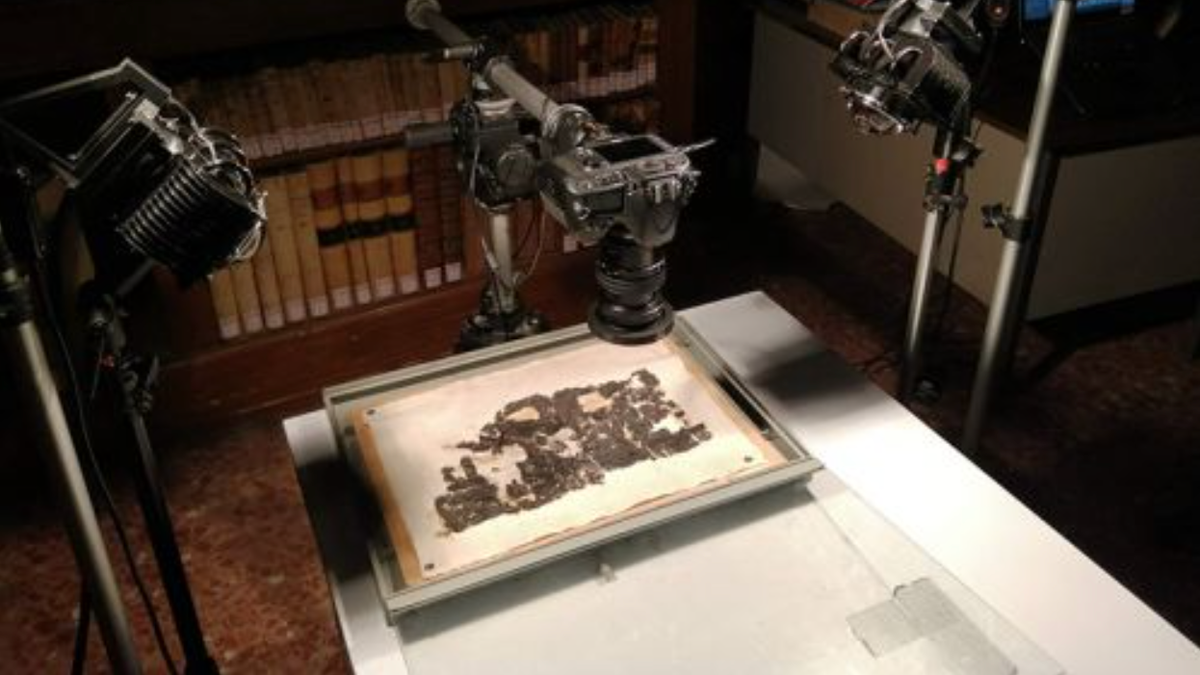Unveiling the Final Days of Plato: A Scholarly Discovery
The ancient Greek philosopher Plato, known for his extensive writings on political philosophy, aesthetics, and ethics, and even the mythical city of Atlantis, passed away almost 2,400 years ago. Recently, researchers made a significant announcement regarding the discovery of his burial site and details of his last moments, which were preserved in a nearly 2,000-year-old document charred by an ancient volcanic eruption.
Decoding History Through Innovation
Following the eruption of Mount Vesuvius 1,945 years ago, the Roman towns of Pompeii and Herculaneum were submerged in ash, effectively preserving their inhabitants and their possessions. The Villa of the Papyri, a residence in Herculaneum filled with documents, including the remarkable find, was engulfed, essentially carbonizing its contents. Through the innovative application of optical coherence tomography and infrared hyperspectral imaging, scholars from the Greek Schools research project successfully uncovered about 1,000 words from the charred scroll, shedding light on Plato’s final days and demise.
A Journey Through Ancient Texts
The manuscript was inscribed by Philodemus of Gadara, a poet and philosopher of Herculaneum. While historical records indicated that Plato was interred in the vicinity of the Academy, the school he established in Athens, the exact location remained a mystery. Lead researcher Graziano Ranocchia, a papyrologist from the University of Pisa, shared insights gathered from the newly decrypted text, suggesting that Plato was laid to rest in a private garden close to the Academy’s muses’ shrine. The Academy met its demise at the hands of Roman general Sulla, with its remnants now situated in Akadimia Platonos, a neighborhood near the Acropolis.
The translated document also posed alternative timelines for Plato’s period of enslavement, revising dates to either 404 BCE or 399 BCE from the previously believed 387 BCE. Furthermore, details of Plato’s final night emerged, revealing his discomfort with the music being played around him. Despite efforts by a Thracian musician to provide comfort through flute melodies, Plato criticized her lack of rhythm, indicating his displeasure with the musical selection.
Embracing Technological Advancements in Scholarship
Artificial intelligence plays a pivotal role in the digital reconstruction of fragile scrolls that are too delicate to be manually unfurled. The perils associated with physical attempts to unravel scrolls were exemplified in the destruction caused by early efforts, resulting in irreplaceable losses of textual treasures. Employing neural networks and X-ray tomography, researchers can now identify ink markings within the scrolls, facilitating comprehensive analysis without compromising their integrity.
Recent advancements in computer vision, a subset of artificial intelligence enabling machines to interpret visual data, offer promising avenues for preserving and interpreting ancient manuscripts. By harnessing these cutting-edge technologies, scholars can delve deeper into historical narratives and secure valuable insights for future generations, ensuring the enduring legacy of these invaluable documents.
Image/Photo credit: source url





